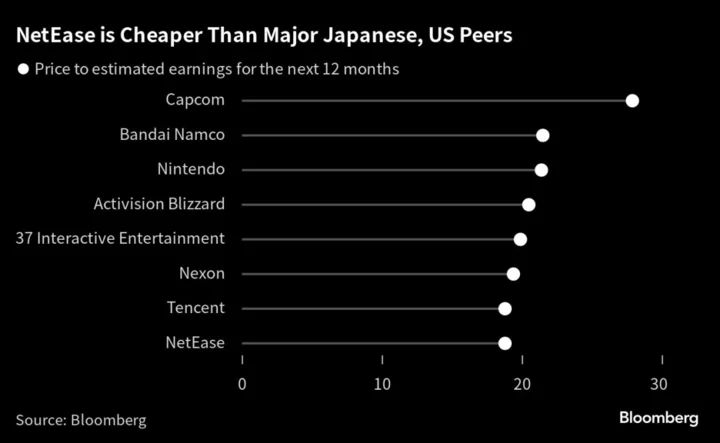
NetEase’s 85% Stock Comeback Defies China’s Slowdown
A slew of recent blockbuster video game hits by NetEase Inc. is giving bulls renewed optimism that the
2023-07-05 10:45

Montana becomes first US state to ban TikTok
Montana on Wednesday became the first US state to ban TikTok, with the law set to take effect next year as debate escalates over the impact and...
2023-05-18 07:47
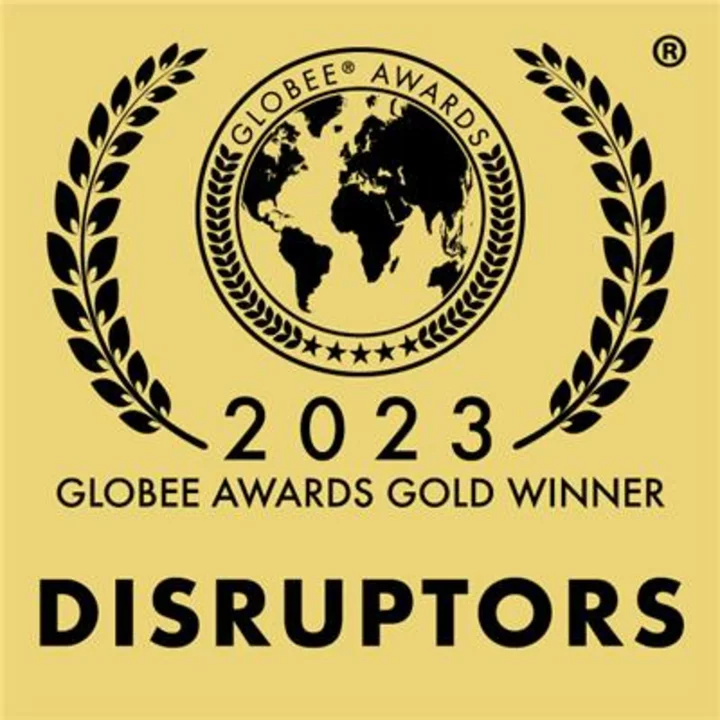
Toshiba ELERA™ Commerce Platform Wins 2023 ‘Disruptors in Retail’ Globee® Award
RESEARCH TRIANGLE PARK, N.C.--(BUSINESS WIRE)--Jun 29, 2023--
2023-06-29 21:56

Lenovo Announces New Innovations in Gaming, Software, Visuals, and Accessories for the Holidays
BERLIN--(BUSINESS WIRE)--Sep 1, 2023--
2023-09-01 12:48

Fortnite Shield Breaker EMP Locations
Players can find Fortnite Shield Breaker EMPs from the ground, Chests, and Heist Bags to disable vehicles, cameras, turrets, and laser grids.
2023-09-07 02:21

Starship launch LIVE: SpaceX attempts historic test of world’s biggest rocket
After months of delays, SpaceX will finally attempt to launch its massive Starship rocket into orbit for the first time. Saturday’s attempt comes seven months after the first effort to launch a fully stacked Starship – which is both the tallest and most powerful rocket ever built – ended in a catastrophic explosion, just minutes after lift off. SpaceX boss Elon Musk says Starship holds the key to making humanity a multi-planetary species, with plans to build hundreds of the spacecraft in order to set up a permanent human colony on Mars. But first Starship must successfully conduct an uncrewed orbital test, which will see it leave from its launchpad at SpaceX’s Starbase facility in Texas, before flying almost all the way around the Earth and splashing down off the coast of Hawaii. A 20 minute launch window opens at 7am CT (1pm GMT), with the flight expected to last around 90 minutes. We’ll be bringing all the latest updates, as well as a live stream as soon as it is available.
2023-11-18 18:54
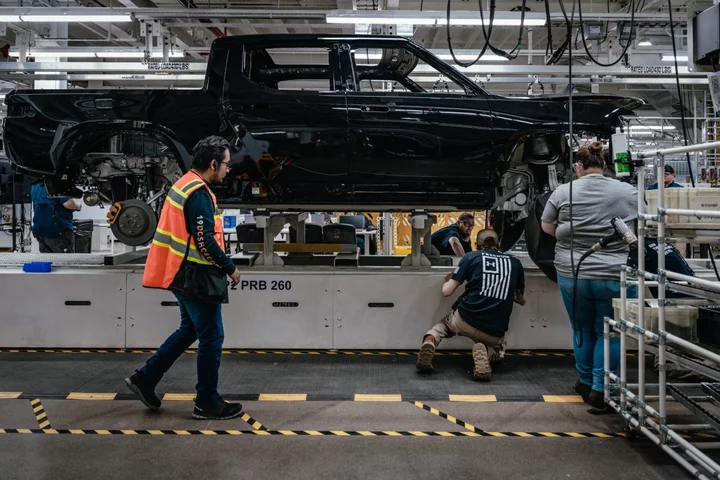
It’s Carmakers Against Miners in Battle Over China-Funded Metals
US policymakers, eager to foster the country’s own electric-car supply chain, mostly agree Chinese raw materials shouldn’t play
2023-07-18 22:55

Twitter is now worth one-third what Elon Musk paid
Ever since Elon Musk acquired Twitter for $44 billion last year, it's been a widely
2023-05-31 05:19
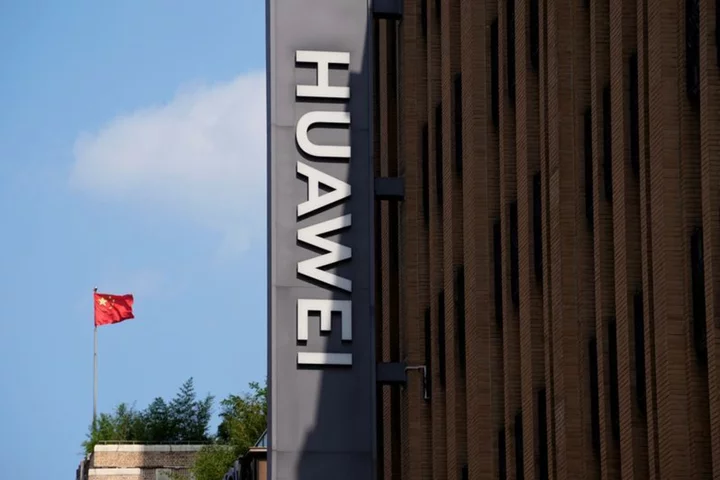
Huawei flags product event, details about closely watched smartphones expected
BEIJING (Reuters) -China's Huawei Technologies said on Thursday it will hold a media event to discuss new products on Sept.
2023-09-14 12:58

Popular Otome Game Obey Me! & US’s Top-Class Online Manga Store MangaPlaza to Exhibit at Anime Expo 2023
OSAKA, Japan--(BUSINESS WIRE)--Jun 19, 2023--
2023-06-19 20:15

Germany Risks €24 Billion Budget Hole, Lawmaker Says
Germany has a potential hole in its 2024 budget of as much as €24 billion ($26.4 billion), though
2023-11-29 17:50

Canada-Based Fintech Companies Can Compete For $300,000 Cash In The Second Annual Digital Commerce Calgary Fintech Award
CALGARY, Alberta--(BUSINESS WIRE)--May 24, 2023--
2023-05-24 22:56
You Might Like...

Who is Tarik? Pro gamer calls out xQc for attempting trash talk in 'CS2' streamer's chat, Kick star says 'get a job'

Shell Challenged on Net Zero After Fossil-Fuel Investment Boost

Ryder Secures Spot Among Supply & Demand Chain Executive’s ‘Top Supply Chain Projects’

Mortal Kombat 1 narrates deaths with bizarrely calming voice

FC 24 Centurions Crafting Upgrade: How to Complete the Milestone Objective and SBC

MadaLuxe Group Enhances Brand Operations with Digital Wave AI-Powered Omni Platform

Evil Genius Games sues Netflix over ‘Rebel Moon’ game creation
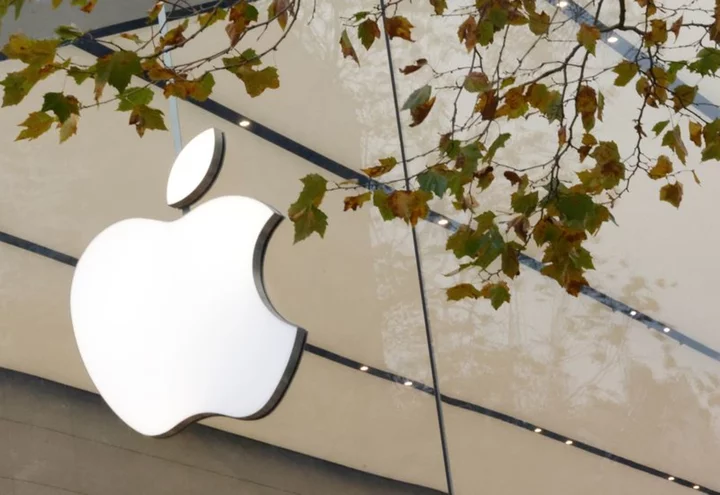
Apple hikes price of Apple TV+, Apple News+
